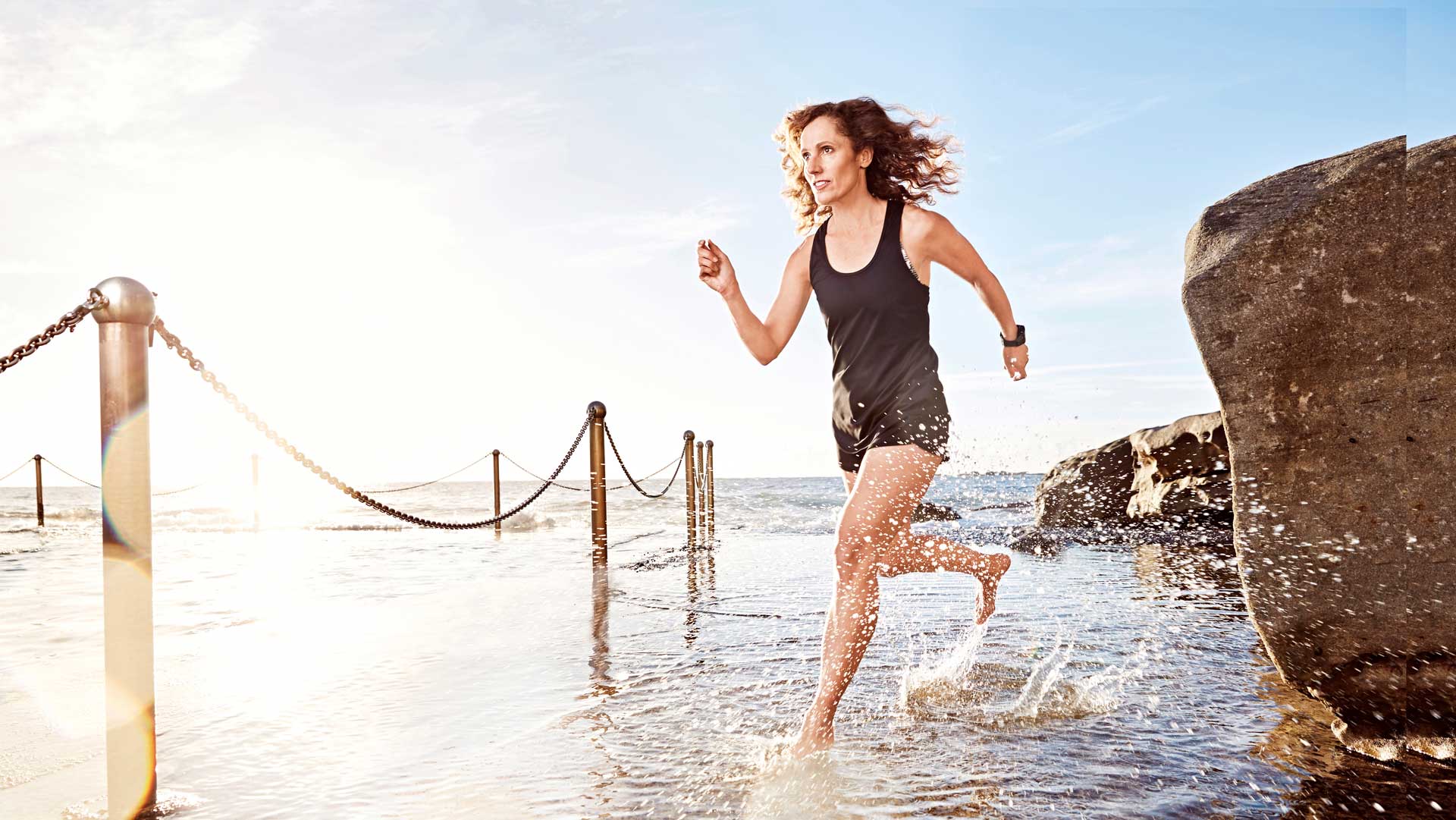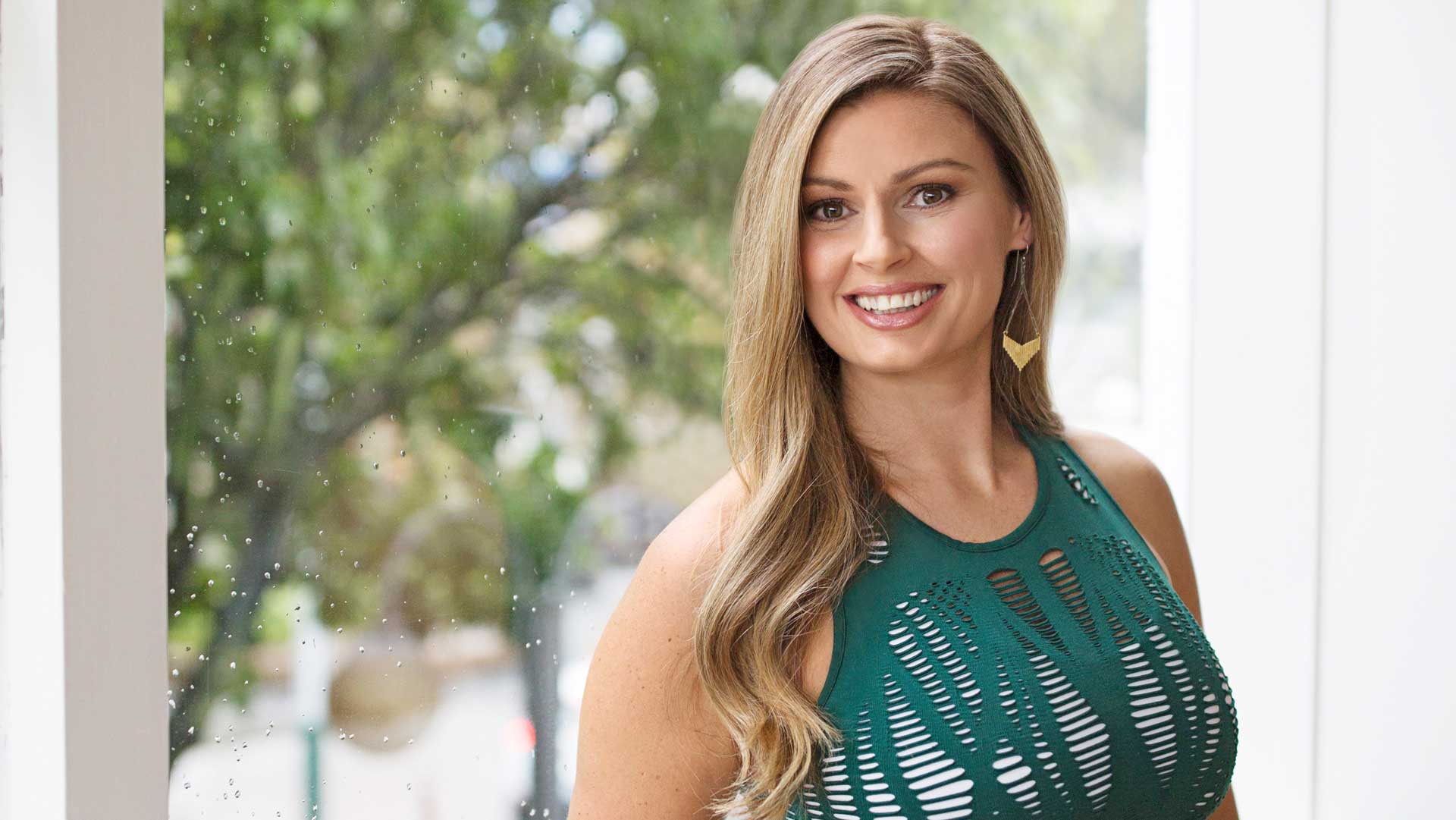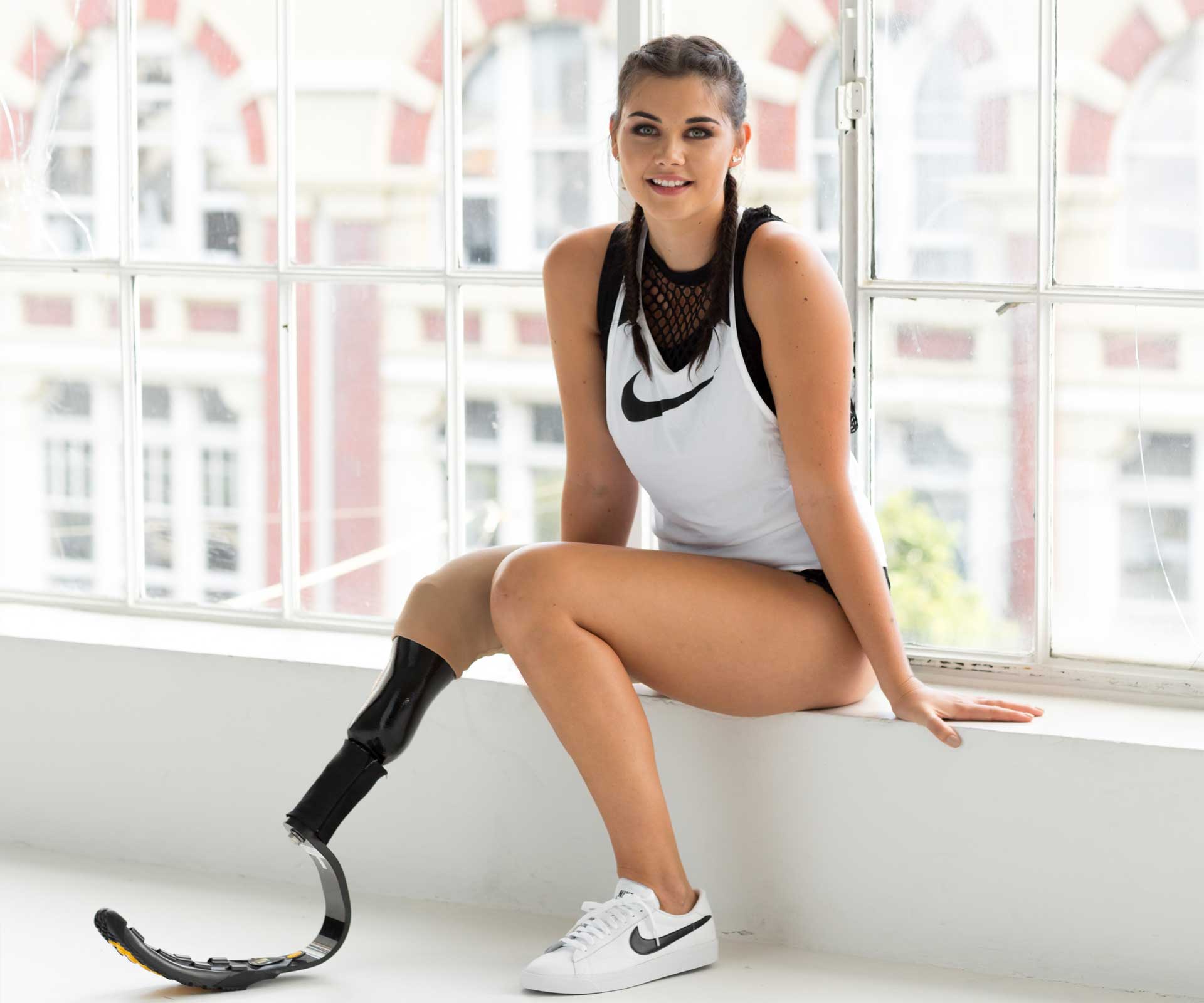It’s minus 41°C at the North Pole. Snow is crunching beneath Heather Hawkins’ feet as the voice in her ear slowly fades. The mother-of-two and cancer survivor had carefully selected a playlist that would keep her spirits up and her muscles pumping for the gruelling marathon across the ice cap.
Yet the frigid air has penetrated her coat and thermals, and her iPod battery has frozen, leaving her alone with her thoughts. The wind is whipping and the silence gives a new definition to the term “white noise”.
“It was a real blow,” Heather says. And this is a woman who knows about real blows.
Eight years earlier, Heather feared her life was over at 41. She was sitting in a doctor’s office and had just been diagnosed with one of the deadliest forms of cancer. She had a malignant cyst on one of her ovaries and it was growing rapidly.
She wasn’t scared of death, but she also wasn’t ready for her life to end. And like every other parent, she wanted to see her son and daughter grow up.
Heather was one of the lucky ones. Her medical training as a nurse helped her identify the symptoms, but it also meant that she was fully aware of how dire her situation was. So when she was cleared, she had no intention of squandering her second chance.
She vowed to live as fully as possible, which is how she found herself running a marathon across the Earth’s frozen apex.
“You need to curl your hands up into a little ball,” she says, describing what it’s like to run in such extreme conditions. The wind, she said, was “blasting. It tries to find any little gap that you might have just to chill you.”
The North Pole marathon was the first of many international races that Heather has completed. Last year, she ran the World Marathon Challenge – seven marathons in seven continents in seven days. Her doctors were amazed.
The day Heather was diagnosed with cancer she was an “everyday mum” who “perhaps should exercise a bit more than she was”, she says.
Yet she has never let a setback get her down. As a survivor, she says she is motivated to show others what they can achieve after cancer. Heather wants to be a positive statistic that will help shift the balance against the devastating disease she overcame, but which many don’t.
“I’m a surf life saver from the beach,” she says. “Just a regular suburban lady who’d simply found her old runners and gardening shorts in the back of the wardrobe three years ago, and got out there and ran.”

Heather running the North Pole Marathon in 2015.
An adventurous start
The one thing Heather’s father told her not to do was drive through the desert after sunset. The year was 1986 and the young nurse was taking a well-earned mini-break from her job at the Alice Springs Hospital.
Uluru was 460km south-west of Alice Springs and Heather had four days off. As soon as her shift finished, she got on the road. Two and a half hours later, she was cruising along when a herd of cattle came into view. Heather slammed on her brakes, but it was too late.
The tyres screamed. She smashed into a steer and ricocheted into a sandbank on the side of the lonely road. The windscreen shattered and the car bent and warped.
Ashley Severin and his son, Ben, found Heather and took her back to their cattle station homestead. “I was worried they were going to be really cranky,” she says. “They welcomed me in.”
By the time Heather was ready to leave, she had been offered a job as Ben’s governess. She didn’t hesitate. “If opportunities have arisen, I haven’t closed the doors and said no. I’ve weighed them up.”
From the cattle station, she moved to Sydney, where she met Doug Hawkins. They married and, within a few years, their children, Rebekah and Callum, were born. Heather settled into the routine of family life, until a discovery changed everything.

Mother, interrupted
It’s never a nice feeling to pull on an item of clothing and find it won’t fasten. For Heather, it was a beloved red skirt. She joked with her daughter that she was experiencing the dreaded middle-age spread, but her training told her it could be something more sinister than a little weight gain.
“Everyone knows their bodies and we all have that intuition when things aren’t right,” Heather says.
She lay down on her bed and performed an examination of her abdomen. She detected a worrisome presence in the lower right side and knew something was wrong.
The unfortunate thing about ovarian cancer is that it often isn’t diagnosed until it is too late for effective treatment. Heather says her medical training saved her.
While she was hoping the firm, tender growth was benign, she knew to act quickly, in case it wasn’t. “They’re incredibly general symptoms,” she says.
At this point in the interview, Heather breaks off for a public health announcement.
“Even if you’re not sure, there’s no harm in making that doctor’s appointment and just going and having that chat,” she says. “We’re such busy creatures. There is that part of us that thinks, no, I’m sure I’ll be better. A lot of people prefer to just push things to the side. I would say, be aware of those symptoms.”
Her medical mind had already considered the possibilities and her doctor ordered a battery of tests. The diagnosis was crushing. Ovarian cancer is the deadliest of all women’s cancers and the disease is often not diagnosed until it has reached an advanced stage. Pap smears cannot detect it.
Heather’s tumour had developed within a cyst. It was 18cm in diameter and weighed more than a kilogram. It had a lot of areas of complex cancer and was growing rapidly.
Her doctor advised her to have surgery as soon as possible. He wanted to remove Heather’s uterus, ovaries, fallopian tubes and a portion of the fatty tissue that covers and supports the intestines and organs in her lower abdomen.
The surgeon was able to remove the tumour intact because it was contained within the cyst. Fortunately, it hadn’t advanced.
“To know it hadn’t spread was an absolute miracle,” Heather says.With the tumour excised, Heather’s oncologist recommended weeks of intensive chemotherapy. Heather’s neighbour, an oncology nurse, urged her to look into a clinical trial at a Sydney hospital. A week later, Heather found herself in a waiting room with other women.
“It’s clear I’m in a room of warriors,” she wrote in her memoir, Adventurous Spirit, which was released in September.
The trial went well and as the weeks stretched into months, Heather remained cancer-free. “Even though there is a lot of distance now, you still find yourself planted right back, facing those same emotions,” she says.
“When you sit down in the chair and have the bloods taken, you think, ‘Please, please no’. I don’t want to go back there.”
The ordeal reawakened the audacious drive that sent Heather to Alice Springs as a junior nurse. It invigorated the instinct that told her to say yes when her car-crash rescuers asked her to move to their remote cattle station.
“I feel incredibly blessed and relieved to have dodged this possible bullet, and I tell myself that I’ll do everything I can to be as healthy and as fit as possible,” Heather wrote.

The finishing line
Heather’s journey back to health was far from easy. It was almost two years before she felt strong enough to put her vow into action, but time did not weaken her resolve. She decided to do her Surf Life Saving Bronze Medallion. Having achieved that goal, she felt empowered.
“It’s now time to reset my compass, to point my feet in the direction of living life to the full and go,” she wrote.
And that is how she found herself crunching through the snow at the North Pole, listening to John Farnham’s voice grow softer until there was no sound but the whip of the wind. Defying her relatively short career as a marathon runner, she was the first woman to cross the finish line. Hungry for more, she signed up for the World Marathon Challenge.
In seven days, Heather ran marathons in Antarctica, Europe, Africa, North and South America, Australia and Asia, dedicating her runs to fellow ovarian cancer sufferers and survivors.
“Having been through ovarian cancer, it was just something that I could say to myself – ovarian cancer doesn’t define me any more,” she says.
Now she hopes to be a beacon of hope for other women grappling with the diagnosis she faced. She wants to show other survivors they don’t need to wrap themselves in cotton wool.
“That’s such a strong drive, to show others that it’s not necessarily the end,” she says. “Certainly, in those early days, look after yourself, but start to be bolder and push your boundaries because you can be strong again.”
To find out more about ovarian cancer, visit the New Zealand’s Cancer Society website.


